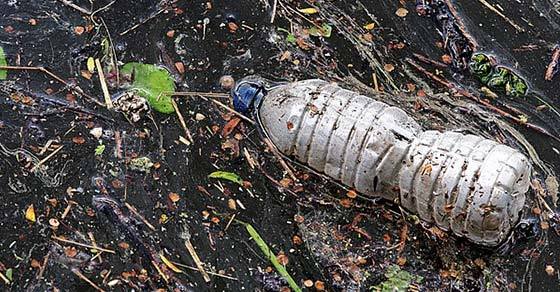While plastic has improved our lives in innumerable many ways, it has also become an insurmountable waste management issue, threatening the environment around us. As the world demands change, many industry experts are looking to plastic pyrolysis, a form of advanced plastics recycling and recovery (APRR), as a way to solve this issue and convert plastics to a usable fuel.
The Problem with Plastics
The pervasive use of plastics, paired with their long lifetime, has caused them to become a global epidemic, largely because of the volume in which they are produced, and the lack of adequate end-of-life management strategies available. According to National Geographic, of the total 8.3 billion metric tons of plastic that have been produced since major production began just six decades ago, 6.3 billion metric tons of plastic have ended up as waste.
Plastics that end up as waste have a devastating and irrevocable impact on the environment and wildlife, particularly in the world’s oceans where most of them eventually end up.
These effects continue to reveal themselves in more alarming ways, washing up in droves on beaches, entangling wildlife, and even showing up in the bellies of whales and other marine animals. A 2016 study found that plastic provides an ideal environment for algae growth, which, on breaking down, emits an odor that masquerades as a food source, causing sea birds to ingest the plastic.
Another recent study found that airborne microplastics are depositing minute plastic particles all over the western US and likely all over the world, a startling find.
Plastic Pyrolysis: Beyond Traditional Recycling
Unfortunately, recycling just isn’t enough to manage the aftermath of our insatiable demand for these polymer-based products. Of the total 6.3 billion estimated tons of plastic that have become waste since the start of major production, only nine percent has been recycled.
Traditional recycling faces a number of challenges that hamper adequate widespread adoption, including logistical and economic challenges, as well as a lack of consumer awareness and education. Recycling has been further hurt by the recent upheaval of the global recycling market caused by China’s ban on most imports.
The market was turned upside down in January of 2018, when China – the world’s largest market for recyclables – enacted their “National Sword” program, halting the importation of contaminated recyclables in an effort to improve the nation’s environmental standing. The initiative took the world by surprise, ripping the rug out from underneath the entire system. In the US, this has put mounting pressure and increasing costs on municipalities, causing many to divest of their recycling programs and divert plastics to landfills.
With the absence of its major market, the industry has also increased shipments to developing countries, a problem that has become so rampant, that plastic was recently added to the Basel Convention, forcing exporters to acquire the receiver’s consent before shipping most recyclables.
In short, plastic is overrunning the planet, prompting a worldwide and urgent call for action.
Plastic Pyrolysis as a Solution
Solving the plastic problem will require a multi-faceted approach that changes the narrative around plastic, promoting a circular economy and eliminating the throw-away mentality that brought the industry to this point.
One technology gaining traction in the effort is the conversion of plastics into fuel products, broadly known as plastics-to-fuel technology, or PTF.
The high energy content of plastics allow plastics-to-fuel technologies to convert non-recycled plastics into a wide array of fuel and petroleum-based products, according to the American Chemistry Council. Among them:
- Electricity
- Fuel oils
- Petrochemicals
- Lubricants
- Transportation fuels
- Crude oil
Plastics-to-Fuel Conversion via Pyrolysis
There are many potential avenues to conversion. Pyrolysis, a high-temperature thermal processing technique, is recognized as the most efficient and widely used approach.1
Pyrolysis can be carried out in various types of equipment, with the indirect rotary kiln being a common device. Indirect rotary kilns allow the processing environment to be very tightly controlled in terms of both temperature and atmosphere. As the conversion of plastics to fuel can only occur if oxygen is not present, the indirect kiln is used because it can provide an oxygen-free processing environment.
3D Model of a FEECO Indirect Kiln
Plastics are loaded into the pyrolysis kiln, a sealed off rotating cylinder that is externally heated. At temperatures between 650° and 800° C, the plastics are transformed into a gas. The gases are carried out of the rotary kiln and condensed into a liquid, which can then be further treated to yield the desired fuel product.
Benefits of Plastics-to-Fuel (PTF) Pyrolysis Technology
There are many benefits to the PTF pyrolysis approach:
Reduced Environmental Impact
First and foremost, the ability to recover plastics as energy would prevent them from being landfilled, dumped, and ending up in oceans, eliminating the associated issues.
Potential for other environmental benefits exists as well. A study by Argonne National Laboratory (ANL) found that pyrolyzing plastics into ultra-low sulfur diesel (ULSD) required up to 58% less water, 96% less energy, and produced 14% fewer greenhouse gas emissions compared to traditional production of ULSD from crude oil.
Further, because plastics have a low sulfur content, plastic-derived fuels burn cleaner.
Acceptance of a Wide Array of Feedstocks
Pyrolysis systems can accept a wide range of plastics, making them flexible in their application.
Most importantly, pyrolysis is a good fit for plastics that are not suitable for mechanical recycling, making the technique a valuable complement to existing recycling technology.
Added Energy
Produced from hydrocarbons, plastics are essentially made up of stored energy – energy that is lost when plastics are disposed of. As such, the conversion of non-recycled plastics to fuel would be more than just a waste management benefit; it would create an additional source of energy.
Economic Benefits
A report by the American Chemistry Council found that the potential benefits of investing in advanced plastics recycling and recovery facilities in the US are “overwhelmingly positive.” Estimated figures for 260 new facilities included:
- 38,500 jobs
- $2.2 billion in annual payrolls
- $9.9 billion in US economic output
Support for Plastic Pyrolysis & Conversion to Fuel
PTF technology is continuing to gain acceptance as a solution to the plastics problem.
Texas is the most recent state to pursue legislation encouraging advanced plastics recycling and recovery technologies in the US, following in the footsteps of Florida, Wisconsin, Georgia, Iowa, and Tennessee.
The Chemical Recycling Alliance (TCRA), formerly known as the Plastics-to-Fuel and Petrochemistry Alliance, is a group championed by the American Chemistry Council, aimed at promoting chemical recycling technologies. The group recently announced three aggressive goals for US plastics:
- 100% of plastics packaging is re-used, recycled or recovered by 2040.
- 100% of plastics packing is recyclable or recoverable by 2030.
- 100% of the U.S. manufacturing sites operated by ACC’s Plastics Division members will participate in Operation Clean Sweep-blue by 2020, with all of their manufacturing sites across North America involved by 2022.
Conclusion
Despite their incredible ingenuity, the widespread negative impact of plastics is a global crisis in need of immediate action. Plastics-to-fuel technologies, particularly pyrolysis in a rotary kiln, offer an efficient and commercially viable way to create value from a devastating waste, adding many additional benefits along the way.
FEECO is a leading provider of custom rotary kilns for pyrolyzing plastics into fuel. Our indirect rotary kilns are engineered for efficiency, performance, and reliability. In addition to our custom kilns, we provide comprehensive testing services for the development of commercial-scale rotary kilns, with many batch- and pilot-scale test kilns available. For more information, contact us today!



